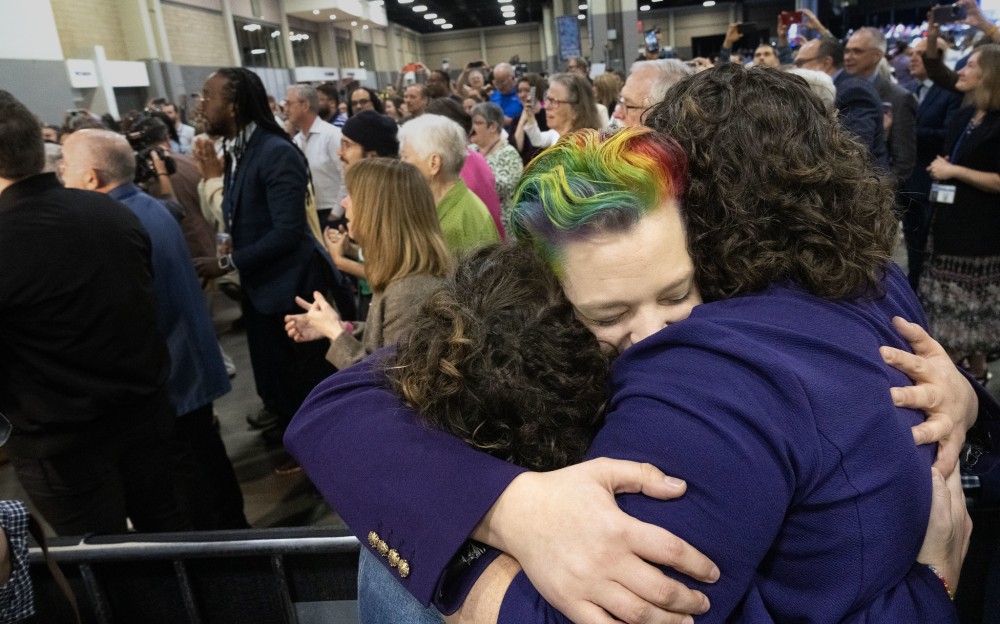Missed opportunities at the UMC general conference
We took some good steps. But we are too afraid to name certain truths.

Jesi Lipp, a lay delegate from the Great Plains Conference, reacts after General Conference voted to remove the UMC’s ban on the ordination of clergy who are “self-avowed practicing homosexuals”—a prohibition that dates to 1984—during the 2024 United Methodist General Conference in Charlotte, N.C. (Photo by Larry McCormack, UM News)
The theme of the United Methodist general conference in Charlotte, North Carolina, emblazoned on banners, tote bags, and name tags, was a snippet of Psalm 46: “Know that I am God.” At the end of the second day, as I trudged back to my hotel from the convention center, a man on the sidewalk asked for money. As I reached for my wallet, he peered at my nametag and smirked. “‘Know that I am God’? Think a lot of yourself, do ya?”
Sometimes UMC messaging doesn’t come across as we intended. The message that the general conference wanted to send: “Look! The UMC can have a general conference without shooting ourselves in the foot.” COVID and congregational disaffiliation have inflicted the cruelest cuts in two centuries of US Methodism. In response, we were determined to have the most relentlessly upbeat, obstinately positive general conference ever.
Our longing for affability faced quite a challenge. In the waning hours of the special general conference back in 2019, legislation was passed whereby for the first time in history a Methodist congregation could vote its way out of the denomination, taking church assets and real estate with them. The paragraph was concocted to facilitate exits for progressive congregations, heartbroken over that general conference’s doubling down on restrictive legislation targeting LGBTQ Christians.




